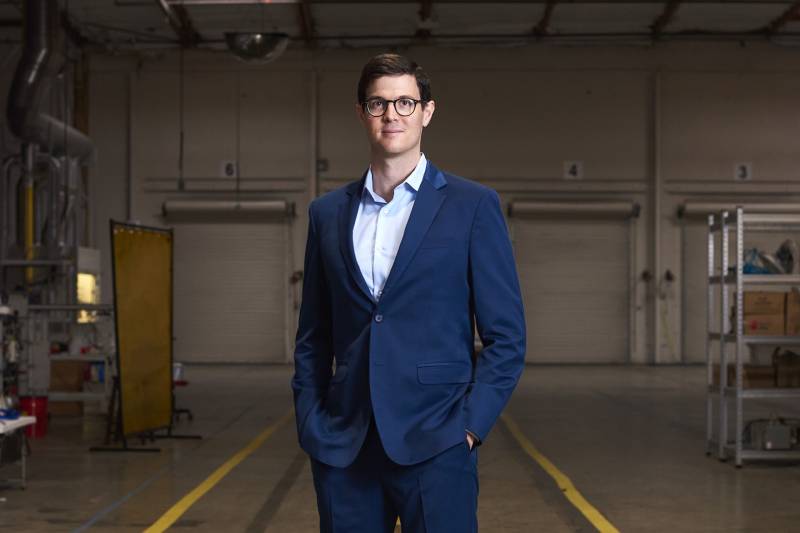Oakland-based Lilac Solutions is one of the companies trying to use domestic lithium to make batteries that could power the U.S. toward a future without fossil fuels.
Dave Snydacker, the company’s CEO, says a tricky part is to capture the lithium without damaging the environment.
“The environmental challenges associated with lithium production today relate to land use and water consumption,” he said.
Lithium extraction in South America and Australia has created serious environmental issues. Advocates around the Salton Sea have raised concerns about harmful impacts and extra waste from extracting and processing lithium.
Lilac’s solution is vastly limiting the physical footprint of its lithium plant from “10,000 acres down to tens of acres, and that’s limited the surface impacts associated with lithium production,” Snydacker said.
He spoke with KQED climate reporter Laura Klivans during a tour of his manufacturing space in West Oakland.
The following has been lightly edited for length and clarity.
What climate problem are you trying to solve?
The big environmental problem that we’re addressing is gasoline. And to replace gasoline, we need to increase production of batteries, and lithium is now the critical bottleneck to battery production.
There is no way to meet climate targets without lithium, it’s essential.
What would success of your company mean for California’s economy?
The Salton Sea is a very large lithium resource capable of producing billions of dollars per year of lithium. That means hundreds of permanent jobs in the Salton Sea and permanent jobs here in Oakland as we scale up the technology.
What initially inspired you to get into this kind of work?
I grew up in Rhode Island, near the beach, where the ocean was a really important part of the community. Looking at forecasts for sea level rise as we lose the Greenland ice sheet was fairly shocking and horrifying. You think, OK, my entire community will be completely underwater by the time my children or my grandchildren are able to enjoy this place. And that’s just an unacceptable outcome.
How will what happens at COP affect your work?
If COP is successful, this will mean more demand for electric vehicles. But meeting that demand will only be possible with more lithium.
Even if things go south at COP, how’s that going to impact your company?
I’ve lost a lot of faith in the ability of the government to deliver solutions.
We’ve seen the private sector really step up, make big commitments to innovate toward electric vehicles, to finance the supply chain and to start new companies capable of making all that happen.
I’m confident we will solve climate change and decarbonize the economy, the question in my mind is how fast does that happen? It needs to happen soon.

